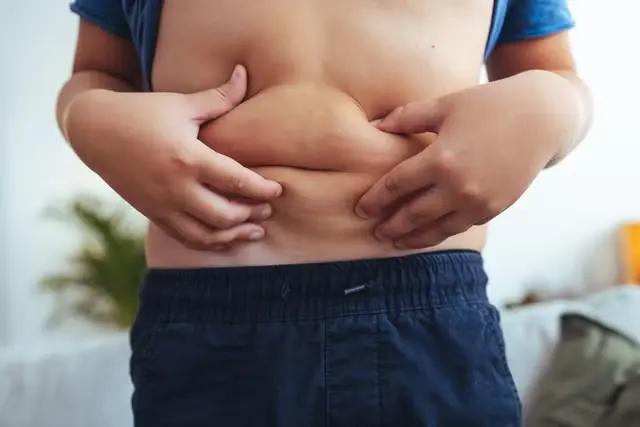Do you ever feel like you need to crash diet to lose weight quickly? You’re not alone. Many people choose to diet in this way, but is it actually healthy? Turns out, probably not. In this blog post, we’ll explore the dangers of crash diets and why they should be avoided for healthy weight loss. We’ll also provide some tips on how to achieve sustainable weight loss without resorting to extreme measures.
What is a crash diet?
A crash diet is any diet plan that involves making drastic changes to your normal eating habits, usually with the goal of rapid weight loss in a short period. Typically, crash diets involve cutting out entire food groups or following a very low-calorie diet. Some common examples of crash diets include:
- Detox Diets. A detox diet is a type of diet that is designed to help the body rid itself of toxins. Some people choose to do a complete detox, which involves eliminating all solid food and only consuming liquids for some time. Other people opt for a more gentle approach, such as avoiding processed foods and eating more fruits and vegetables
- Juice cleanses. A juice cleanse diet is a food detox plan that involves consuming only fruit and vegetable juices for a period of time, typically for three to ten days. Juice cleanses are said to help with weight loss, increase energy levels and promote detoxification. While there is no scientific evidence to support these claims, many people find that juice cleansing helps them to feel lighter, more energized and less bloated. Juice cleanses are also generally considered to be unhealthy due to their lack of protein, fat and other essential nutrients
- Keto diets. The keto diet requires you to drastically reduce your intake of carbohydrates and replace them with fat. This process called ketosis can lead to weight loss. However, it can also cause several side effects, such as headaches, fatigue and constipation
- Cabbage soup diet. This weight loss diet has been around for many years. The premise of the diet is simple: eat a bowl of cabbage soup every day and you will lose weight. There are many variations of the diet, but most involve eating soup for seven days straight, followed by a day of normal eating. Some versions also include eating specific foods on certain days, such as fruits and vegetables on day two or meat on day five
Do crash diets work?
There is no denying that crash diets can help you to lose weight quickly. By cutting out entire food groups or severely restricting your calorie intake, you can see results in a matter of weeks. These diets are usually very low in calories and may involve eating only certain types of foods, such as fruits and vegetables.
However, this weight loss is often only short-term. Once you return to your normal eating habits, the weight will quickly pile back on. This is because crash diets are often very difficult to stick to and usually leave people feeling deprived and hungry. Additionally, long-term restrictive diets can cause nutrient deficiencies and slow down your metabolic rate.
Crash diets are often used by people who want a quick fix for a special event, such as a wedding or vacation. While crash diets can help you lose weight quickly, they are not always safe or healthy. Some crash diets can cause dehydration, headaches and fatigue. In addition, crash diets often lead to yo-yo dieting, which can make it difficult to maintain a healthy body weight over time.
What are the side effects of crash diets?
Crash diets can have a number of serious side effects, both short-term and long-term.
In the short term, crash dieting can lead to dehydration, headaches, lightheadedness and fatigue. They can also cause irritability, bad breath and constipation. Long-term side effects of crash dieting include an increased risk of heart disease and other chronic illnesses, as well as damage to the kidneys and liver. Crash diets can also cause malnutrition, leading to problems with growth and development in children and adolescents.
What are the psychological effects of crash dieting?
The psychological effects of crash dieting can be significant. For some people, mental health struggles may be triggered when restricting food intake, which can lead to further disordered eating. Additionally, crash dieting can lead to feelings of irritability and low energy levels. This can make it difficult to concentrate or participate in previously enjoyable activities. Crash dieting can also cause body dysmorphic disorder, a condition where a person becomes obsessed with their appearance and perceives themselves as much larger than they are. In extreme cases, this can lead to anorexia nervosa, a potentially life-threatening eating disorder.
Another one of the psychological effects of crash dieting is low self-esteem. When you are constantly depriving yourself of food, it can be easy to start feeling bad about yourself. You may begin to think that you are not worth the effort required to lose weight. This can lead to a negative spiral where you become even more restrictive with your food intake in an attempt to lose weight faster. However, this only leads to further feelings of failure and low self-worth.
If you are considering a crash diet, it is important to be aware of the potential psychological risks involved. Speak with a qualified healthcare professional for medical advice to make sure you are making the best decision for your health and well-being.
What’s the safest diet for weight loss?
When it comes to losing weight, there is no one-size-fits-all solution. However, there are a few general guidelines that can help you choose the safest diet for long-term weight loss.
First of all, make sure that you are getting enough calories to support your activity level. If you are eating too few calories, you will be very low on energy and very hungry. A healthy calorie deficit on the other hand can be enjoyable if done correctly.
Secondly, focus on eating a healthy balanced diet with nutrient-rich foods such as fruits, vegetables, lean protein and whole grains. A good amount of protein is also important for preserving muscle mass as you lose weight. This will ensure that you are getting the nutrients you need to support your metabolism, stabilise blood sugar levels and avoid feelings of deprivation.
Make sure to get plenty of physical activity. Exercise not only helps to burn calories but can also help to build muscle, which can help to boost your metabolism. Physical activity can help to lower blood pressure, promote overall health and well-being, improve cholesterol levels, reduce obesity and the risk of developing heart disease. Finally, make sure to drink plenty of water and eat slowly to avoid overeating.
By following these simple tips, you can create a safe and effective diet plan that will help you reach your weight loss goals. A dietician can help you devise a tailored meal plan and offer you nutritional advice.
Do’s and don’ts of crash dieting
When it comes to weight loss, there are no quick fixes. Sustainable weight loss takes time, lifestyle changes, patience, and commitment. If you’re looking to lose a few pounds quickly, you may be considering a crash diet. While crash diets can help you lose weight in the short-term, they are not a healthy or sustainable solution for long-term weight loss. Here are a few things to keep in mind if you’re considering a crash diet:
Don’t: Go on a crash diet without talking to your doctor first. Crash diets can be dangerous, especially if you have underlying health conditions. Before starting any type of diet, it’s important to talk to your doctor or healthcare professional to make sure it’s safe for you.
Do: Have realistic expectations about weight loss. Most people will not lose more than 2-3 pounds per week on a crash diet. If you’re hoping to lose more than this, you will likely be disappointed.
Don’t: Stay on a crash diet for more than a few weeks. Crash diets are not meant to be followed long-term. If you want to lose weight and keep it off, you need to find a more sustainable solution.
Do: Consider the potential risks of a crash diet before starting one. Crash diets can lead to side effects such as headaches, fatigue and irritability. They can also cause nutrient deficiencies and disrupt your normal eating patterns. If you’re not prepared to deal with these potential risks, a crash diet may not be right for you.
If you’re looking for a maintainable way to lose weight, crash diets aren’t the answer. These fad diets are often restrictive, unhealthy and ultimately ineffective. The best way to lose weight is still through healthy eating and regular exercise, but slow and steady wins the race!
Sources
Medical Disclaimer
NowPatient has taken all reasonable steps to ensure that all material is factually accurate, complete, and current. However, the knowledge and experience of a qualified healthcare professional should always be sought after instead of using the information on this page. Before taking any drug, you should always speak to your doctor or another qualified healthcare provider.
The information provided here about medications is subject to change and is not meant to include all uses, precautions, warnings, directions, drug interactions, allergic reactions, or negative effects. The absence of warnings or other information for a particular medication does not imply that the medication or medication combination is appropriate for all patients or for all possible purposes.








